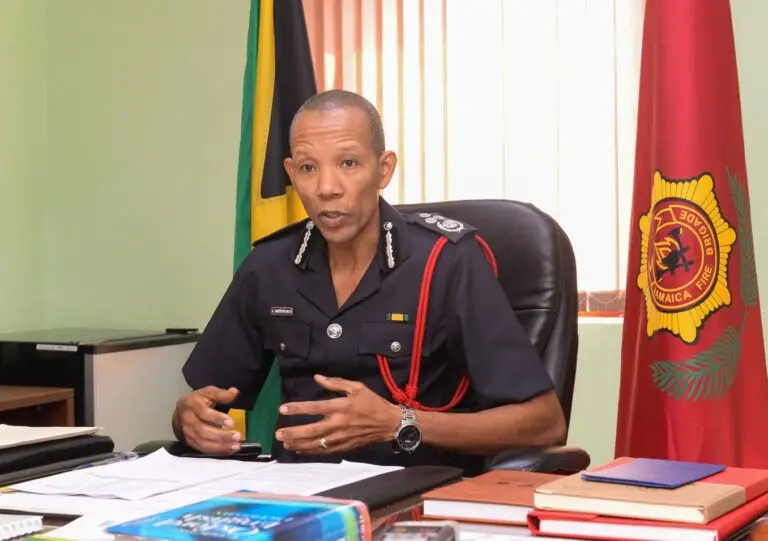As emergency responders race against time to save lives, a growing and dangerous trend is slowing them down—prank calls. The Jamaica Fire Brigade (JFB) has reported a sharp increase in false alarms, putting pressure on critical resources and endangering those in real emergencies.
Commissioner Stewart Beckford has raised concerns about the rising frequency of these hoaxes, particularly bomb threats that have forced unnecessary evacuations in schools, businesses, and government buildings. These incidents, he said, not only waste manpower but also create panic and disrupt daily operations.
However, it’s not just bomb threats clogging the system. Many prank calls come from children with easy access to mobile phones, particularly during school breaks. While mobile devices can be lifesaving tools in real emergencies, they are increasingly being misused to make false reports.
“Parents need to ensure their children understand the importance of emergency numbers. These services exist to protect lives, not for amusement,” Commissioner Beckford urged.
The consequences of these hoaxes are severe. Each false call diverts fire trucks and personnel from genuine emergencies. There have even been instances where fire units responding to hoax calls have been involved in accidents, further straining resources. Worse yet, prank calls leave entire communities vulnerable when responders are tied up on a false alarm.
Currently, authorities lack the ability to track prank callers effectively, but new measures are in development to address this growing issue. A planned emergency response system will soon enable authorities to pinpoint the location of callers, ensuring that malicious actors are held accountable while also improving response efficiency in real crises.
As Jamaica continues to modernize its emergency response systems, one thing remains clear—public cooperation is crucial. Every prank call takes time and resources away from real emergencies. The JFB is urging citizens to use emergency numbers responsibly, recognizing that every second wasted could mean the difference between life and death.As emergency responders race against time to save lives, a growing and dangerous trend is slowing them down—prank calls. The Jamaica Fire Brigade (JFB) has reported a sharp increase in false alarms, putting pressure on critical resources and endangering those in real emergencies.
Commissioner Stewart Beckford has raised concerns about the rising frequency of these hoaxes, particularly bomb threats that have forced unnecessary evacuations in schools, businesses, and government buildings. These incidents, he said, not only waste manpower but also create panic and disrupt daily operations.
However, it’s not just bomb threats clogging the system. Many prank calls come from children with easy access to mobile phones, particularly during school breaks. While mobile devices can be lifesaving tools in real emergencies, they are increasingly being misused to make false reports.
“Parents need to ensure their children understand the importance of emergency numbers. These services exist to protect lives, not for amusement,” Commissioner Beckford urged.
The consequences of these hoaxes are severe. Each false call diverts fire trucks and personnel from genuine emergencies. There have even been instances where fire units responding to hoax calls have been involved in accidents, further straining resources. Worse yet, prank calls leave entire communities vulnerable when responders are tied up on a false alarm.
Currently, authorities lack the ability to track prank callers effectively, but new measures are in development to address this growing issue. A planned emergency response system will soon enable authorities to pinpoint the location of callers, ensuring that malicious actors are held accountable while also improving response efficiency in real crises.
As Jamaica continues to modernize its emergency response systems, one thing remains clear—public cooperation is crucial. Every prank call takes time and resources away from real emergencies. The JFB is urging citizens to use emergency numbers responsibly, recognizing that every second wasted could mean the difference between life and death.

